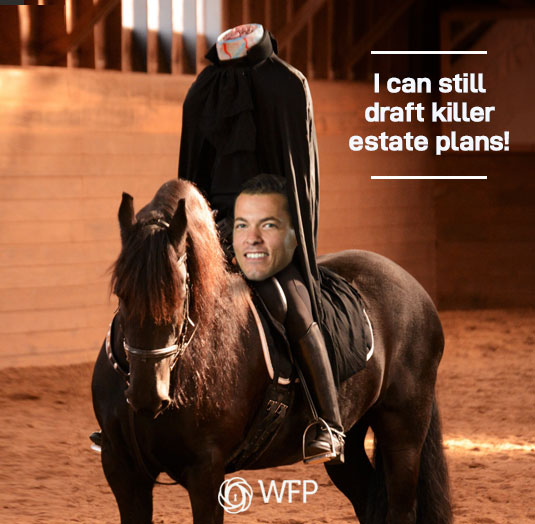 Halloween is spooky season. It’s a time for all ghosts, ghouls, and goblins to come out and make themselves known. For a lot of people, this time of year is their favorite. And we can see why. The leaves are changing (if you live up North, that is), and Christmas is drawing closer.
Halloween is spooky season. It’s a time for all ghosts, ghouls, and goblins to come out and make themselves known. For a lot of people, this time of year is their favorite. And we can see why. The leaves are changing (if you live up North, that is), and Christmas is drawing closer.
Speaking of all things scary and creepy, let’s talk about probate court. Though probate court might not spark the same fear as Stephen King’s It, it’s still no fun at all. Probate court deals with matters of estate administration. In this article, we’ll talk more about probate court’s functions and why you want to avoid it.
What Does Probate Court Do?
Probate court is presided over by a judge, of course, and that judge’s main mission is to ensure that someone’s creditors are paid off and their estate is wrapped up neatly. The basic role of the court is to deal with the debts and property of someone who has died. You can go through probate court even if you die with a last will and testament, as that will has to be authenticated.
Disadvantages of Probate Court
Public Process
Probate court is a public process. This means that family and friends have a forum to bring claims if they think they’re entitled to your property or that there is a problem with your legal documents after you die. As you can imagine, this increases the chance of conflict after your death. It might even escalate if relatives are battling it out, and your estate could wind up with some heft legal fees. Also, your personal information, down to the age of beneficiaries to how much your jewelry is worth, is out there for the public to see.
Court-Supervised
Probate court is supervised by a judge and controlled by a huge book of laws. Your executor is restricted and bound by these laws, and they’re not often able to act in a way that maximizes your estate’s value. Executors usually have to get the court’s permission for the majority of transactions they enact on behalf of your estate.
No Advance Planning
Anyone can go to probate, whether they have a will or not. There’s no advanced planning, and you don’t have to do anything before you die. However, that’s a double-edged sword, as the lack of advance planning means that you won’t have the ability to administer your estate in a way that shows your loved ones how much you care. The values expressed will be those of the court, not yours.
Intestacy
Dying intestate (without a will) is the scariest thing of all. Dying intestate has a lot of potential consequence, as that means that the court has total control. Your next of kin might not end up as your chosen heirs, and your loved ones will be bound by the law, not the provisions you make for them.
Expensive
Probate can consume a lot of your estate. That number might be in the single-digits, but it still leaves less money for your heirs. Taxes, filing fees, and other costs can make a sizable dent in your estate that your family is not likely to appreciate.
Time-Consuming
Lastly, probate court is time-consuming. Though it’s been reformed time and again, it’s still unpleasant. Your executor will have to complete tons of forms throughout the process, working on your estate tirelessly.
How to Avoid Probate Court
After hearing all these negatives, you are probably wondering how you can avoid probate court. This is where an estate attorney can step in, as they can help you perform legal maneuvers, such as writing a living trust, naming beneficiaries on your bank accounts and retirement, and holding property jointly, that will get you out of probate court. There are ways around it; you just have to seek help first.
As you can see, probate court isn’t something you want to tangle with. Avoiding probate court is something with which an estate planning attorney can help you, as they understand full-well probate court and its disadvantages.